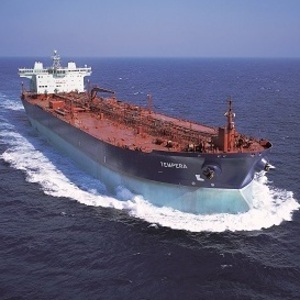VTT to assess bio and waste oils suitable for power plants, ships

Photo: Neste Corp.
April 7, 2020
BY VTT
In a three-year Business Finland BioFlex project, VTT Technical Research Centre of Finland Ltd. and partners are exploring how suitable fuel oils made from biomass and waste plastics are for power plants and ship diesel engines. The aim is to determine the most ecologically and economically sustainable way to replace fossil fuels.
The increase in wind and solar power requires load-following capacity to flexibly compensate for gaps in electricity production on windless and cloudy days. Power plants that use fuels will continue to be part of energy systems, but there are differences in their flexibility. Conventional coal- or biomass-fired steam boilers are not capable of load changes that are as fast as those of natural gas-fired gas turbine power plants or the most flexible power plants of them all: internal combustion engine power plants.
Internal combustion engine power plants use natural gas or heavy fuel oil in diesel engines. In order for large diesel engines to be environmentally sustainable both on land and at sea, it is necessary to find bio and waste-based alternatives to fossil fuels. These will be identified and evaluated in the BioFlex project coordinated by VTT.
Advertisement
Advertisement
“Our goal is to find the most ecologically and economically sustainable way to replace fossil heavy fuel oil in ship and power plant diesel engines,” said Anja Oasmaa, VTT senior principal scientist. “We compare different methods of industrially producing fuel oils from, for example, waste plastics or biomass, such as harvest residues from forestry and agriculture. We are also conducting experiments to examine the suitability of the oils for applications.”
In addition to seeking a sustainable solution for the production of load-following capacity, the BioFlex project also aims to support the objective of the International Maritime Organization to halve greenhouse gas emissions from marine traffic by 2050.
In theory, bio or waste-based fuel oil could be identical to fossil fuel oil in chemical composition. In practice, however, the objective is a similar oil that does not require significant modifications to diesel engines when used. It is also essential that the oil keeps well in storage, mixes with fossil oils and keeps sulfur, nitrogen and particulate emissions low.
Advertisement
Advertisement
“The use of bio-oils is still limited, mainly for cost and availability reasons, and I expect the project to address these factors,” said Ilkka Rytkölä, chief technology officer of Auramarine, a supplier of fuel injection systems. “It is very important that the subject is researched together to identify all potential challenges throughout the manufacturing, distribution and consumption chain. Every effort must be made to reduce greenhouse gas emissions, and bio-oils will play a significant role in this battle going forward.”
The BioFlex project has a budget of 1.6 million euros and, along with Business Finland and VTT, is co-financed by fuel oil producers, users and equipment manufacturers. The companies involved include Auramarine, Fortum, Neste, Pohjanmaan Hyötyjätekuljetus, Polartek, St1, Valmet and Wärtsilä.
VTT brings to the project its expertise in sustainable development, analytics, diesel engine emission measurement, and thermal conversion methods used in the liquefaction of biomass and waste plastics. These include pyrolysis and HTL, or hydrothermal liquefaction, among others. The aim is also to utilize the expert networks of the International Energy Agency.
Related Stories
The U.S. EPA on July 8 hosted virtual public hearing to gather input on the agency’s recently released proposed rule to set 2026 and 2027 RFS RVOs. Members of the biofuel industry were among those to offer testimony during the event.
The USDA’s Risk Management Agency is implementing multiple changes to the Camelina pilot insurance program for the 2026 and succeeding crop years. The changes will expand coverage options and provide greater flexibility for producers.
The USDA’s National Agricultural Statistics Service on June 30 released its annual Acreage report, estimating that 83.4 million acres of soybeans have been planted in the U.S. this year, down 4% when compared to 2024.
SAF Magazine and the Commercial Aviation Alternative Fuels Initiative announced the preliminary agenda for the North American SAF Conference and Expo, being held Sept. 22-24 at the Minneapolis Convention Center in Minneapolis, Minnesota.
Global digital shipbuilder Incat Crowther announced on June 11 the company has been commissioned by Los Angeles operator Catalina Express to design a new low-emission, renewable diesel-powered passenger ferry.
Upcoming Events










